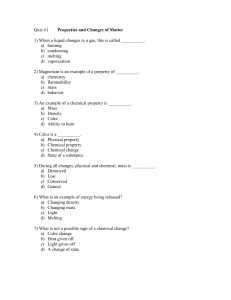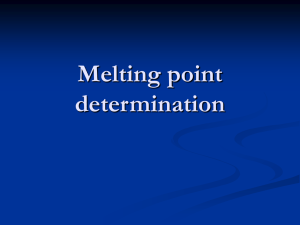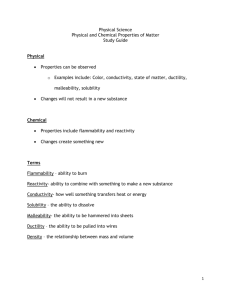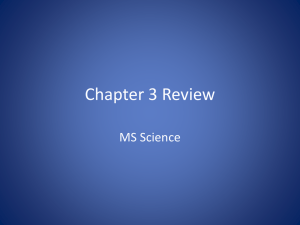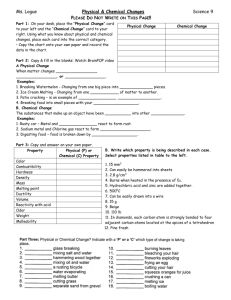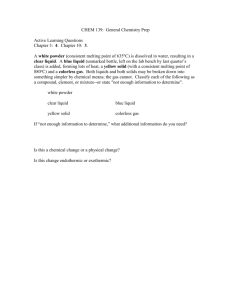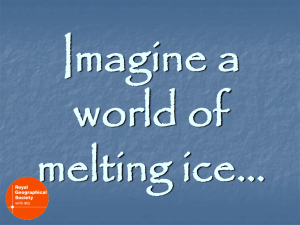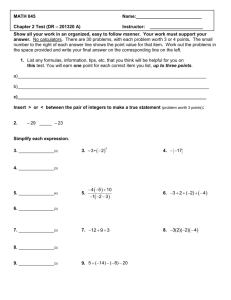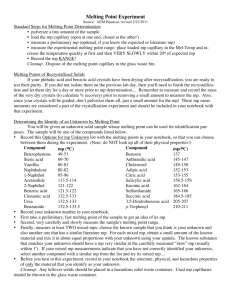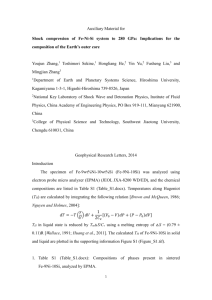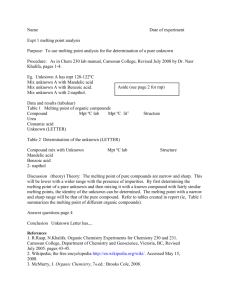Physical & Chemical Properties and Changes Presentation
advertisement
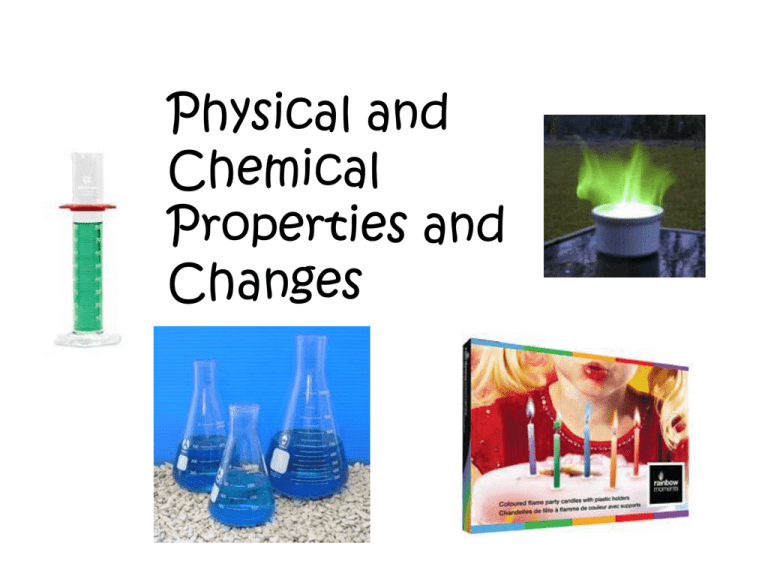
Physical and Chemical Properties and Changes Physical Properties Are a substance’s characteristics that can be observed. Qualitative Examples: How something can look, smell, or sound States of matter (solid, liquid, or gas) Physical Properties Quantitative • • • • • More Examples: Volume Area Length Mass Temperature More Physical Properties Viscosity- the tendency of a liquid to resist flow. Conductivity- the ability to allow heat to flow. Malleability- the ability of a solid to be hammered without shattering Hardness- the ability to scratch another substance Melting Point- the temperature at which a solid changes into a liquid Boiling Point- the temperature at which a liquid changes into a gas Density- defined as mass / volume Physical Changes Include: 1) Change of property 2) Creation or separation of a mixture 3) Physical deformation (cutting, bending, crushing, etc…) melting evaporating Energy absorbed by particles------------ ------------Energy released by particles freezing condensing Physical Properties This includes: • Boiling point • Melting point • Freezing point Chemical Properties- any ability to produce a change in the composition of matter. 1) 2) 3) 4) Flammability pH Reactivity Corrosiveness Chemical Properties Flammability – is a material’s ability to burn in the presence of oxygen Reactivity- the property that describes how readily a substance combines chemically with other substances Corrosiveness- causing damage to metal or other materials through a chemical process pH - a measure of acidity and alkalinity of a solution that is a number on a scale (1 -14) on which a value of 7 represents neutrality Chemical Changes • Occur when a substance goes through a chemical reaction. Rearranges atoms into new substances. The reaction cannot be reversed by ordinary processes. Examples: Leaves changing color in the fall. Baking a cake. The batter absorbs energy and changes into a new substance with different properties. Evidence of a chemical change: 1) 2) 3) 4) Produces gas or bubbles Color changes Not easily reversed Light, heat, or sound is released • The only PROOF is a new substance formed with different properties Example: nail silver magnetic rusted nail orangish/brown not magnetic Review Classify the following scenarios as either physical or chemical changes. Scenario Baking a Cake Melting Snow Pouring water into a graduated cylinder Burning a candle Physical Change Chemical Change Mixing the batter Odor change, color change, not easily reversed Change in state of matter Change in shape Melting the wax Odor, new gas, heat or light Mushrooms act as decomposers in the rainforest Is decomposition a physical change or chemical change? Explain Leaf cutter ants carry leaves back to their nest and grind the leaves into pulp. A fungus grows on the pulp and is used as food for ants. Explain both the physical and chemical changes of their actions.
